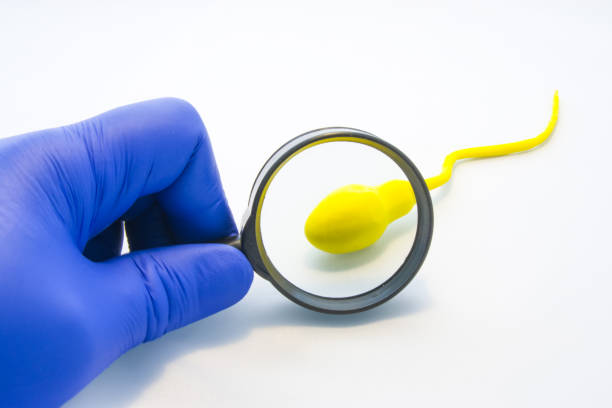Men’s Health, Reproductive Health
Take Charge of Your Male Reproductive Health
Understanding and addressing male reproductive health is critical to overall well-being and quality of life. From youth to maturity, men face a variety of reproductive-related health concerns and considerations. In this article, we’ll look at a thorough guide to male reproductive health recommendations, including topics like sexual health, fertility, prostate health, and preventive care. By giving useful insights and practical assistance, we hope to enable men to take proactive measures toward their reproductive health and address any issues or challenges they may face. Whether it’s improving fertility, maintaining sexual wellness, or preventing reproductive illnesses, this article provides vital information to help men achieve and maintain optimal reproductive health their whole lives.

Understanding Male Reproductive Health
Male reproductive health is a crucial part of overall health and well-being. Understanding the anatomy of the male reproductive system, the role of hormones in male fertility, and typical male reproductive problems can help men regain control of their reproductive health.
Anatomy of the Male Reproductive System
The male reproductive system consists of multiple organs, including the testicles, scrotum, penis, urethra, vas deferens, ejaculatory duct, prostate gland, and seminal vesicles. The testicles produce sperm and testosterone, while the scrotum helps maintain their temperature. During ejaculation, the penis delivers semen containing sperm through the urethra.
Role of Hormones in Male Fertility
Hormones such as testosterone play an important influence in male fertility. Testosterone is responsible for the development of male reproductive organs as well as secondary sex traits like muscle bulk, body hair, and a deep voice. It also regulates sperm production and sexual function.
Common Male Reproductive Disorders
Several disorders can have an impact on male reproductive health, including testicular illness, erectile dysfunction, varicocele, and sexually transmitted infections like chlamydia and gonorrhea. Infertility is another prevalent male reproductive condition that affects roughly one in every twenty men. The symptoms of male reproductive problems might vary depending on the ailment and may include pain, swelling, and abnormalities in sexual function.
Male reproductive abnormalities are diagnosed and treated based on the unique condition, which may involve medication, surgery, or lifestyle modifications. Regular check-ups with a healthcare practitioner can help discover and treat potential problems at an early stage.
To summarize, understanding male reproductive health is critical to preserving overall health and well-being. Men can take control of their reproductive health and live a healthy, satisfying life by adopting healthy habits and receiving medical assistance when necessary.

Lifestyle and Environmental Factors
Male reproductive health is heavily influenced by environmental and lifestyle variables. Here are some ways to assist men improve their reproductive health.
Diet and Nutrition
A nutritious diet high in fruits and vegetables is essential for male reproductive health. These meals are high in antioxidants, which can aid increase sperm function. Men should also attempt to consume enough zinc, which is required for normal sperm production. Foods high in zinc include oysters, cattle, pig, and chicken.
Physical Activity and Weight Management
Maintaining a healthy weight and participating in regular physical activity can also benefit male reproductive health. According to studies, a rise in body mass index (BMI) is associated with a decrease in sperm count and motility. Men who are overweight or obese may benefit from losing weight by combining good nutrition with exercise.
Substance Use and Exposure to Toxins
Substance abuse and pollutants can have a severe impact on male reproductive health. Men should avoid smoking and heavy alcohol intake, since both have been associated to lower sperm count and quality. Toxins such as hot tubs, workplace chemicals, and anabolic steroids can all have a harmful impact on male reproductive health.
Men should also be mindful of drugs that can have a harmful impact on reproductive health, such as certain antidepressants and blood pressure medications. If you have any questions about how a medicine is affecting your reproductive health, speak with your healthcare provider.

Optimizing Fertility and Preventive Measures
Men can take numerous efforts to optimize their fertility and prevent reproductive health complications. This section of the article discusses some of the major methods that can improve sperm quality and quantity, promote sexual health and safe practices, and encourage consultation with healthcare practitioners.
Enhancing Sperm Quality and Quantity
Sperm count and motility are critical determinants in male fertility. Men can take actions to improve the quality and quantity of their sperm. A nutritious diet rich in fruits and vegetables can assist to increase sperm quality. Antioxidants included in these meals can help protect sperm from damage and increase motility.
Men should also avoid smoking and heavy alcohol intake, since both can have a negative impact on sperm quality. Furthermore, taking supplements like D-aspartic acid and antioxidants like vitamins E and C can help boost sperm count and motility.
Sexual Health and Safe Practices
Maintaining male reproductive health requires good sexual health. Men should practice safe sex by utilizing contraception and avoiding sexually transmitted infections (STDs). Using condoms during sexual activity can help prevent the transmission of STDs and lower the possibility of an unwanted pregnancy.
Men should be checked for STDs on a regular basis, especially if they have several sexual partners. If left untreated, STDs such as chlamydia and gonorrhea can lead to male infertility.
Consulting Healthcare Providers
Consulting with healthcare specialists is an important step in improving male fertility and preventing reproductive health disorders. Men should have regular check-ups with their doctors to monitor their reproductive health.
If a couple is experiencing trouble conceiving, they should jointly see a reproductive doctor. A fertility specialist can assist diagnose and treat underlying reproductive disorders, as well as provide advice on how to improve fertility.
Men thinking about getting a vasectomy should talk to their doctor about the risks and advantages. A healthcare expert can help men make an informed decision about whether vasectomy is the best option for them.
To summarize, maximizing fertility and preventing reproductive health disorders necessitates a combination of good lifestyle habits, safe sexual practices, and regular consultations with healthcare experts. By completing these steps, men can increase their odds of successfully fertilizing an egg and having a healthy pregnancy.

Impact of Age and Medical Conditions
As men age, their reproductive health may be influenced by a variety of circumstances, including medical issues and lifestyle decisions. Understanding the impact of these factors is critical to sustaining good reproductive health. This section of the article will investigate the effects of aging and medical disorders on male reproductive health.
Age-Related Fertility Changes
As men age, their fertility may diminish due to changes in sperm quality and quantity. Sperm motility and semen volume can both decline with aging. These alterations are the result of a drop in testosterone levels and changes in the testicles. Men, unlike women, do not experience a dramatic and rapid reduction in fertility with age.
Managing Chronic Conditions and Reproductive Health
Cancer, diabetes, and injuries are all chronic medical disorders that might have an impact on male reproductive health. Cancer therapies, such as chemotherapy and radiation, can impair sperm production and result in low sperm counts. Diabetes can also impair sperm quality, leading to erectile dysfunction. Injuries to the vaginal area or the pituitary gland can potentially affect male fertility.
In addition to medical issues, certain drugs can affect male reproductive health. Medications used to treat high blood pressure, depression, and anxiety might impair sexual performance and sperm production. Lead and other environmental pollutants can adversely affect male fertility.
Lifestyle issues such as smoking, alcohol drinking, and drug usage can all have an impact on male reproductive health. Smoking reduces sperm count and motility, and heavy alcohol use can lower testosterone levels. Drug use, particularly anabolic steroids, can also cause infertility.
Overall, understanding how age and medical factors affect male reproductive health is critical for sustaining optimal fertility. Making lifestyle changes and obtaining medical care as needed can assist improve reproductive health and enhance the likelihood of conception.
Conclusion
To summarize, emphasizing male reproductive health is critical for men to enjoy full and healthy lives. Men can take proactive efforts to care for their reproductive systems at any point of their lives by following the advice and tactics given in this thorough handbook. Men have the ability to take control of their reproductive health and address any concerns that may develop by engaging in safe sex and maintaining a balanced diet, as well as scheduling frequent check-ups with healthcare providers and being aware of any changes or symptoms. By encouraging open conversation, knowledge, and empowerment, we can strive toward a future in which every man has the resources and support he needs to achieve optimal reproductive health and general well-being.
Trusted Health, Wellness, and Medical advice for your well-being


